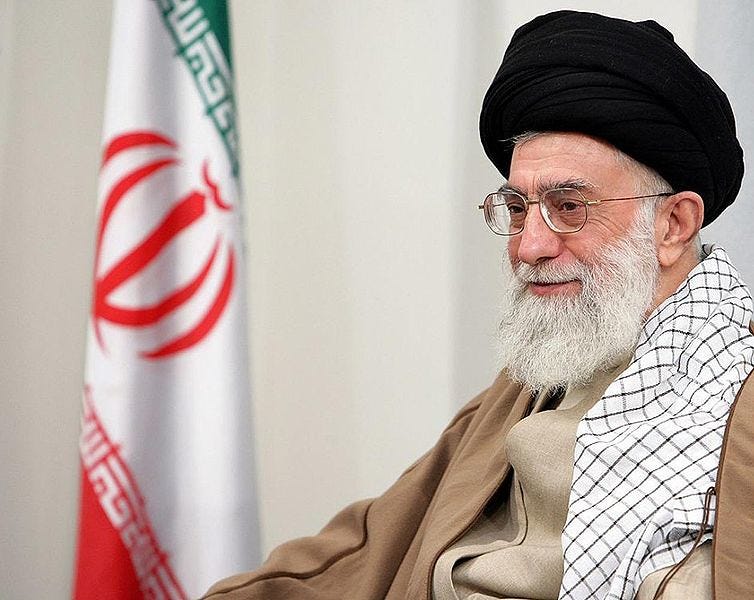Trump Shuts Out Intel Chief as Iran Briefing Sparks Secrecy Scandal
As U.S. officials prepare to brief the Senate on Iran strikes, the White House sidelines its top intelligence officer—raising fresh questions about truth, loyalty, and the cost of narrative control.
It is not always the facts that are classified. Sometimes, it is the silence that becomes policy. On Thursday, four of President Donald Trump’s most loyal national security officials will file into a secure Senate room with the task not of sharing intelligence, but of shaping it. Missing from that room will be Tulsi Gabbard—the one intelligence official who contradicted the president’s narrative. She has been asked not to attend.
The subject: Iran.
The stakes: a world on the verge of nuclear recalibration.
The message: controlled.
For those keeping score, the briefing marks another small but significant incision into the already frayed fabric of institutional trust—this time, in the name of national security. But what happens when intelligence itself becomes an instrument of performance, and the actors step in wearing uniforms?
President Trump’s decision to strike Iranian nuclear facilities using B-2 bombers and submarine-launched Tomahawk missiles was dramatic, and for a moment, seemingly definitive. The target list included major sites—Fordow, Natanz, Isfahan—symbols of Tehran’s nuclear ambition. In public remarks, Trump declared the mission had “obliterated” the program.
That word—obliterated—was Trump’s, spoken with the theatrical certainty of a man who has long preferred adjectives to assessments. But the first classified reports, as leaked to CNN and corroborated by internal White House sources, told a subtler truth: the strikes had set Iran’s program back by several months, not years. They caused significant damage, yes—but not irreparable.
The Axios report confirmed what national security insiders feared: the intelligence was being diluted for optics. And the silence that followed was not incidental. It was engineered.
The White House, stung by the leaks and unwilling to appear contradicted, is now limiting access to classified briefings. The strategy is surgical. Gabbard—Director of National Intelligence, and once a political wild card—had testified just three months prior that U.S. intelligence did not assess Iran to be actively developing a nuclear weapon. Her remarks, consistent with the Defense Intelligence Agency’s pre-strike assessments, now placed her at odds with the president’s narrative.
So, she is not invited.
Instead, CIA Director John Ratcliffe will represent the intelligence community—despite holding a different brief and reputation. A senior Trump administration official, speaking anonymously, confirmed the substitution, saying Ratcliffe would “speak for the IC.” As if intelligence were a singular voice, not a system of structured disagreement.
On paper, the briefing is robust: Defense Secretary Pete Hegseth, Secretary of State Marco Rubio, Chairman of the Joint Chiefs Gen. Dan Caine, and Ratcliffe. But intelligence, like jazz, is about what isn’t played. Gabbard’s absence is louder than her presence would have been.
Inside the SCIF, the chairs will be arranged in strict semi-circular tiers under fluorescent lighting. Senator nameplates—Thune, Schumer, Wyden—will be polished to bureaucratic perfection. Behind soundproofed glass, a Hill staffer, clutching a yellow legal pad, will press her forehead to the window. She’s not permitted to listen—only to observe.
The mood in Washington has shifted from procedural to premonitory. On Wednesday, Senate Minority Leader Chuck Schumer condemned the administration’s tactics, calling the limitation on congressional access “a violation of constitutional duty.” He reminded the chamber that under the 1973 War Powers Resolution, the president must notify Congress within 48 hours of military action and follow up with a classified briefing. Trump complied, technically—sending a brief memo stating that the strike was carried out to protect U.S. interests and citizens—but lawmakers from both parties now question whether the spirit of the law was honored.
The classified briefings, originally scheduled for Tuesday, were delayed—first to accommodate travel, then to buy time. Trump had been negotiating a ceasefire in The Hague, flanked by Hegseth and Rubio, while back in Washington, the clock ticked. A final version of the administration’s story was still coalescing.
One senior Senate aide, speaking anonymously to Politico, called the maneuver "deeply troubling" and added, “We’re not just being kept in the dark—we’re being told darkness is strategic.”
Meanwhile, the president was staging another type of briefing—one with cameras. On Thursday morning, before the Senate hearing, the administration announced a “Major News Conference” at the Pentagon, designed—Trump said—to “fight for the Dignity of our Great American Pilots.” On Truth Social, he lambasted the media for downplaying the operation and made the unverified claim that pilots flew “36 hours through Enemy Territory”—a conflation of roundtrip time over the Atlantic with actual time over target.
“These Patriots were very upset!” he posted, capitalizing every word as if punctuating a campaign slogan rather than an intelligence event.
This dual-track strategy—one of omission behind closed doors, one of exaggeration before microphones—reveals a truth larger than the Iran strike itself: the Trump administration is not merely shaping perception; it is declaring ownership over it.
There is no suggestion that Iran’s nuclear activities are benign. Nor is there complete alignment within the intelligence community. But when assessments are pre-selected and dissenting voices excluded, intelligence stops being process and becomes product.
And the machinery of democracy—oversight, deliberation, accountability—grinds against the narrative.
In the halls of the Capitol, Tulsi Gabbard will not testify. Her past statements—measured, cautious, inconvenient—have been redacted from the moment. Somewhere in a secure file, her assessment still exists: that Iran’s nuclear capabilities, while dangerous, had not yet crossed the threshold. That the strike, though potent, had not permanently reversed the course.
It may still be true. Or not. The point is, no one will hear it.
Not today.
History may record the June 2025 strike as a tactical victory, a diplomatic feint, or a political performance. But the deeper consequence may be quieter: the normalization of intelligence as a stage prop, redacted not for security, but for choreography.
What we do not know may not be the danger.
What we are no longer allowed to ask—might be.




